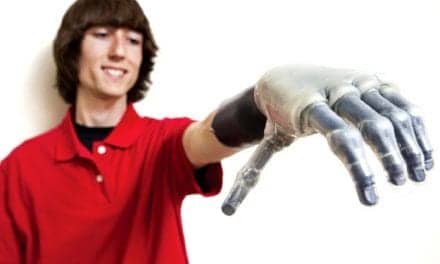A traditional rehabilitation program that incorporates mental practice of tasks during therapy significantly improves outcomes in patients with chronic stroke, according to a report in the journal Stroke.
"Mental practice, sometimes called ‘motor imagery,’ is a technique by which physical skills can be cognitively rehearsed in a safe, repetitive manner," Dr. Stephen J. Page and colleagues from the University of Cincinnati Academic Medical Center, Ohio, write. "Mental practice increases motor-skill learning and performance in rehabilitative settings, and the same neural and muscular structures are activated when movements are mentally practiced as during physical practice of the same skills."
In the new study, the researchers compared the effectiveness of a rehabilitation program incorporating mental practice of specific arm movements to traditional rehabilitation. A total of 32 chronic stroke patients with moderate movement problems received 30-minute therapy sessions twice a week for 6 weeks. The sessions emphasized activities of daily living.
In addition to traditional rehabilitation, patients who were assigned to the experimental condition also received 30-minute mental practice sessions directly after therapy that required daily mental practice of the activities of daily living. Patients assigned to the comparison group received traditional rehabilitation, followed by a fake intervention consisting of a relaxation program.
The mental practice group showed significant improvements in arm movement. Subjects receiving mental practice also had significant increases in daily arm function. Moreover, the ability to perform valued activities was only observed in subjects in the group receiving mental practice.
"The results support the efficacy of programs incorporating mental practice for rehabilitating affected arm motor function in patients with chronic stroke," the authors conclude.
SOURCE: Reuters




